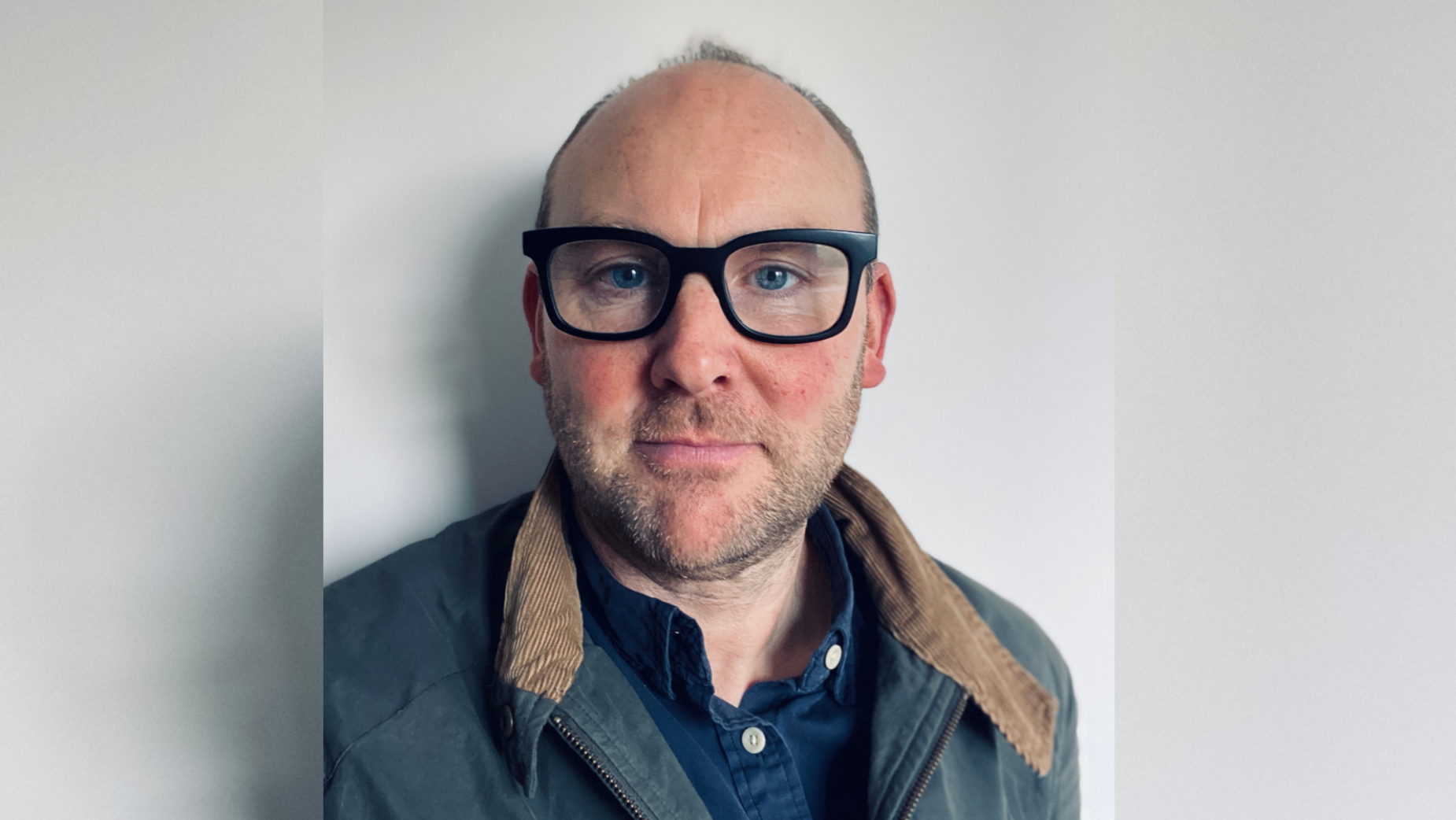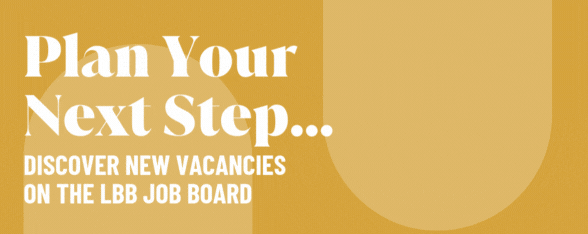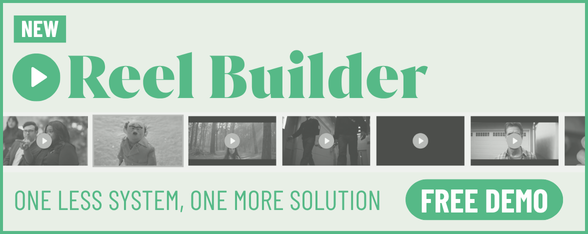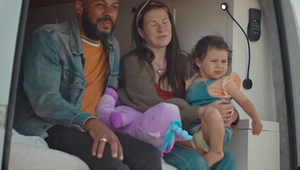
Meet Your Makers: The Production Balancing Act with Marcus Eley

Marcus Eley has been involved in production for over 15 years working at the some of the best creative agencies in the UK and Australia in both producer, executive producer and head of production roles, making and overseeing work for all types of corporate and consumer brands. This experience led him to setting up his own production services company, Good Emperor Ltd to take his experience into agencies, in-house agencies and brands who require production expertise to make their content.
LBB> What first attracted you to production - and has it been an industry you’ve always worked on, or did you come to it from another area?
Marcus> I always thought advertising sounded interesting but had no idea how to get into it and really had no clue that there was an entire machine and industry behind production.
It was whilst working in an uninspiring part-time job in Notting Hill that I met production company producer Suki Foster who talked to me about advertising and specifically production. She knew someone at an ad agency who was looking for a production assistant. Four weeks later I walked into JWT on Berkeley Square for my first day working in their TV department.
LBB> What was your first role in the production world and how did this experience influence how you think about production and how you grew your career?
Marcus> An ad agency production assistant working with a senior producer at JWT. The learning curve was steep. I listened, got told what to do, made mistakes, learnt the hard way, and slowly started to find a rhythm. You form a tight bond with the other production assistants. Everyone was learning and earning the same. We would go to every industry bash available and through that networked and found a place for ourselves.
LBB> How did you learn to be a producer?
Marcus> Hard work, more hard work, fewer mistakes, small wins. Listening, observing, and making your own informed decisions.
There was and, in some cases, still is, a roadmap for how a piece of work is pulled together but many ways to execute it and this is where you can earn your stripes and set yourself apart. I was taught well but the essential skill is to listen and try to get ahead of stuff as much as possible. This is something that comes with experience. A producer’s secret sauce is to lay out the red carpet out before the guests arrive.
LBB> Looking back to the beginning of your career, can you tell us about a production you were involved in where you really had to dig deep and that really helped you to grow as a producer?
Marcus> My first overseas shoot in Cape Town soon after I was promoted felt daunting. The responsibility weighed heavy. Making sure the agency and talent got on a plane was stressful enough. They almost didn’t and I didn’t sleep until after the first day’s wardrobe call. The shoot itself went well as I remember, and it was only on the flight home that you realise that there is a team of people to make this work and it’s not all on you, there’s always someone to ask. We have a very supportive network in our industry.
LBB> A good producer should be able to produce for any medium, from film to events to digital experience. Do you agree or disagree with this statement? Why/why not?
Marcus> It depends. If as a producer you know where to go, who to lean on for help and what questions to ask then that’s producing. If you mean x1 person to do absolutely everything involved in pulling that production together then not necessarily. No person should be an island, and the best producers will look at a brief, understand their own strengths, and get to a solution.
LBB> What’s your favourite thing about production and why?
Marcus> The different types of work and the challenges to get something made, but something made well. Personally, and possibly something that goes against the grain, but I often like being bought in when there’s a problem. I like the challenge and find it rewarding when you can help solve it. Again, it’s down to experience. As a junior I would have struggled with this but as a more experienced producer I can now look at problems objectively and offer up solutions.
LBB> How has production changed since you started your career?
Marcus> The media landscape and digital has changed how we work. The volume of what is expected now is so much greater than when I started. The tools at our disposal are so much greater too and AI will increase this further. The producer is an intrinsically important component in pulling the whole team and project in the same direction. But the rules have changed now, I think the producer has a much more entrepreneurial role to play in shaping how work is bought, made, and delivered.
LBB> And what has stayed the same?
Marcus> The ambition and the craft are still there, and this shouldn’t change even with the growth of AI. I’m now more aware of the business objectives and the ingredients needed to make an effective piece of work and how that work should be produced. Producers have a big responsibility ensuring the clients budget is spent in the right way so setting a production out on the right path is crucial, now more than ever.
LBB> What do you think is the key to being an effective producer - and is it something that’s innate or something that can be learned?
Marcus> I think it’s personal. Every producer will have similar and different sets of skills to draw upon to be effective. For me, tenacity and going the extra mile has served me well. Producers are a resourceful bunch, couple that with a can-do, restless attitude and it can be a powerful combination in finding solutions or getting the work to a better place.
LBB> Which production project from across your career are you most proud of and why?
Marcus> ‘King Snare’ for Greene King when I was at Grey. The idea was originally to be used for a pitch to Heineken which Grey didn’t get through on. I asked Nils Leonard, our CCO to help me wrangle some money from the finance director so we could go and make it for an existing client, Greene King. With the help of the folk at Somesuch and their young director, George Belfield we created and produced a great piece of work that would otherwise have just been another lost idea in a presentation deck.
LBB> And in terms of recent work, which projects have you found to be particularly exciting or have presented particularly interesting production challenges?
Marcus> The Glenlivet ‘Breaking Walls’ production whilst at CPB. A hugely ambitious piece of work. Long days, long nights, so many video calls and meetings and that was before we even shot a single frame. Only once I’d seen the edit did I know we had something a bit special and put as much energy as I could into getting the best possible music score, grade, VFX and sound design as money and time would allow. I think it paid off.
LBB> What are your personal ambitions or aspirations as a producer?
Marcus> Now that I run my own production consultancy my ambitions have changed a bit. I totally understand how agency heads feel when they win a pitch. There’s something very rewarding about gaining a clients trust to give you a brief and a budget. The responsibility is to turn that brief into an engaging and effective piece of content and where possible to elevate the work.
LBB> As a producer your brain must have a neverending "to do" list. How do you switch off? What do you do to relax?
Marcus> I live in the countryside and being around nature and walking the dog is a great tonic for helping to relax.
LBB> Producers are problem solvers. What personally fuels your curiosity and drive?
Marcus> The ability to identify a solution to a problem is somewhat addictive and I’m sure I’m not alone there. It comes from being hardwired to make things happen. It’s my USP. Like I have already mentioned, the more tools you have in your box the easier it becomes to do this.
LBB> What advice would you give to people who are interested in becoming a producer?
Marcus> Make sure you identify what aspects of production you like. It’s not a natural fit for everyone but even the most unexpected people can become the best producers. Grab opportunities when they present themselves as you never know where it will lead.
LBB> From your experience what are the ingredients for a successful production?
Marcus> Communication and ensuring the whole team are all on the same page and share the same ambition. Most of the time that will get you to a good result.
LBB> What’s the key to a successful production-client relationship?
Marcus> Listening. Advising. Talking. Trust. These have been around for a long time but are more pertinent now than ever. The producer can be the glue to a really good relationship.
LBB> Producers are naturally hands on - they have to be. How do you balance that in the more managerial role of an EP?
Marcus> I’ve been both and I think it’s important to keep a light-hand on the project, depending on the requirement, so you always have a touch-point on a production. Back to communication and trust though. An EP should be trusting in their team but hands-on for advice and to step-in when needed. Like all things production, it’s a balancing act.
















